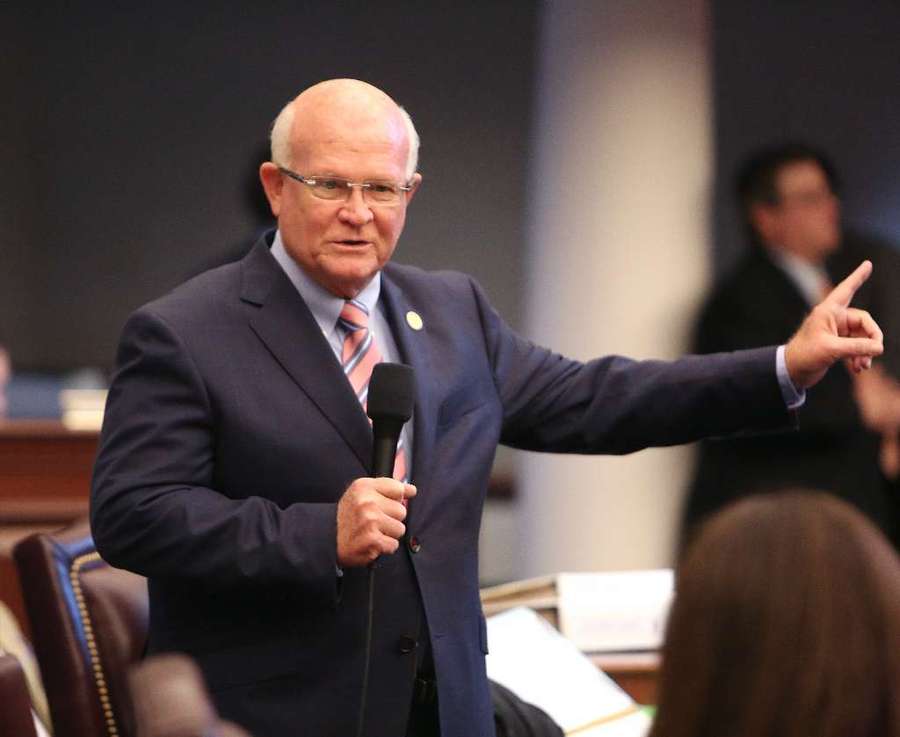
Sen. Dennis Baxley (R-Ocala) hopes to clear up dual enrollment issues during the next legislative session.
A new Florida law intended to eliminate multiple barriers to private and home school students who want to take dual enrollment classes has instead left potentially hundreds of students shut out of taking such courses because their private schools are asked to foot the bill.
Sen. Dennis Baxley, R-Ocala, who wrote the legislation on dual enrollment, wants to mitigate the issue in the upcoming legislative session.
Baxley said he will advocate for a separate pooled fund or cost sharing mechanism that could potentially be used to cover the costs of dual enrollment, removing the financial burden for colleges and private schools.
At the same time, Baxley said he is open to hearing other options from lawmakers about how to address the issue.
“I want to do whatever we can to close the gap so all students have access to dual enrollment,” he said.
Baxley, who was appointed last week by Senate President Bill Galvano to the Education Committee and the Appropriations Subcommittee on Education, said dual enrollment courses are vital to a student’s education.
“It is beneficial to move these students quicker to the finish line on college completion,” he said.
A change in the law in 2013 shifted the cost of dual enrollment programs from colleges to school districts. But it did not address private schools, meaning many of them now must absorb the cost of college courses for high school students.
The new provisions on dual enrollment were contained in a wide-ranging bill, HB 7055, which Gov. Rick Scott signed into law in March. They were expected to address the issue.
One of those provisions removed the requirement that articulation agreements – the documents that allow students to take certain classes at nearby colleges — must specify whether the private schools are responsible for tuition. But educators were not clear on whether that meant that colleges or the private schools would pay the costs of dual enrollment.
Private school officials were waiting this summer for clarification from the state Department of Education, but a recent memo on the bill did not address the provisions. DOE spokesperson Audrey Walden instead cited a memo from Madeline Pumariega, former chancellor of the Florida College System. Pumariega formally oversaw the state’s 28 public colleges, which many private school students attend when they participate in dual enrollment.
Pumariega wrote that even though the new law no longer requires compensation “as a minimum requirement for private school dual enrollment articulation agreements,” it does not prevent colleges from charging a private school for dual enrollment because “previous language (in the law) neither granted nor barred the charging of the private school.”
Dual enrollment by private school students has been declining, even before this year’s change in the law. According to the Florida Conference of Catholic Bishops, the number of students in private schools participating in dual enrollment has fallen by nearly 60 percent in recent years. In the 2011-2012 school year, more than 7,000 private school students participated in dual enrollment compared to only 3,026 in 2016-17.
James Herzog, who works on education policy for the Catholic Bishops Conference, said he is encouraged that Baxley would like to address the issue.
“That means a lot to the schools, the students and the hard-working families we serve,” he said.